Are you gearing up to negotiate your offer letter and wondering how to approach it? Navigating the world of salary and benefits discussions can feel daunting, but with the right strategy, you can confidently express your expectations. It's all about communicating your value while also showing your enthusiasm for the position. Ready to dive into the details and learn how to craft a compelling counter-offer?

Salary and Compensation
When negotiating a counter offer for salary and compensation, it's important to clearly articulate your value to the company and present data to support your request. Consider addressing industry salary benchmarks, your unique skills, and any relevant achievements that contribute to the company's goals. Additionally, outline how the proposed compensation package could align better with your professional experience and expectations, ensuring to maintain a professional tone throughout the correspondence. Always aim for a collaborative approach, expressing enthusiasm for the role and the opportunity to contribute to the organization's success.
Job Responsibilities and Role
In a negotiation for a job offer, discussing job responsibilities and role clarity is crucial for mutual understanding. Defining key tasks, such as project management and team collaboration, is essential for positions in industries like technology and finance. This includes outlining specific metrics for success, such as meeting deadlines and achieving sales targets, typically expressed as percentages. Additionally, clarifying reporting structures can influence accountability and effectiveness. For instance, a software engineer at a tech firm might need to interact with product managers consistently to align project goals. Understanding the expected work hours and the flexibility offered, particularly in a hybrid work environment, shapes work-life balance expectations. Addressing professional development opportunities, like training sessions or mentorship programs, can significantly impact long-term job satisfaction and career progression as well.
Benefits and Perks
Negotiating benefits and perks can significantly impact overall job satisfaction and work-life balance. Competitive salary packages often include health insurance plans, retirement savings options, and paid time off policies. Employers may also offer flexible work arrangements, such as remote work opportunities, which have become increasingly relevant post-COVID-19. Additional perks like professional development opportunities or wellness programs enhance employee engagement and productivity. Commuter assistance, childcare support, or gym memberships can also add considerable value to the compensation package. Understanding the specific offerings from a company, such as those in the tech sector or non-profit organizations, is essential for making informed negotiation decisions.
Work Schedule and Flexibility
Evaluating work schedules and flexibility in job offers can significantly influence employee satisfaction and productivity. A typical work schedule may consist of 40 hours per week, divided into 8-hour daily shifts, commonly observed in corporate environments. Some companies offer flexible work arrangements, allowing employees to choose their start and end times within a specified range, such as starting as early as 7:00 AM or as late as 10:00 AM. Remote work options may also be included, with hybrid models allowing employees to work from home two or three days per week. Research indicates that 70% of employees value flexibility in their schedules, leading to increased morale and retention rates. Negotiating for a compressed workweek, where employees work the same number of hours over fewer days, such as four 10-hour days, can enhance work-life balance and improve overall productivity.
Career Growth and Advancement Opportunities
In the competitive landscape of modern employment, career growth and advancement opportunities play a pivotal role in attracting top talent. Companies should emphasize structured pathways for vertical progression, outlining specific roles such as senior management or specialized expert positions available within two to five years. Additionally, organizations can highlight mentorship programs, training initiatives, and professional development workshops to enhance employee skills. Incorporating transparent performance evaluation processes that link advancements to measurable achievements can further solidify the perception of growth potential. Industry benchmarks for salary increments and promotions over time can serve as critical motivators for job candidates, persuading them to consider long-term career trajectories within the company.
Letter Template For Offer Letter Counter Negotiation Samples
Letter template of offer letter counter negotiation for salary adjustment
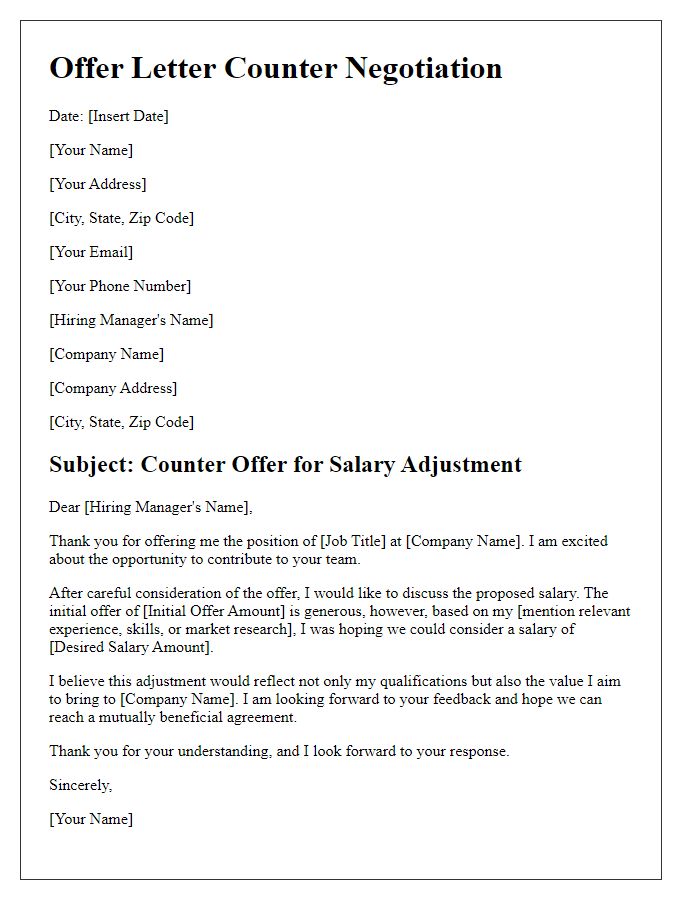
Letter template of offer letter counter negotiation for job responsibilities
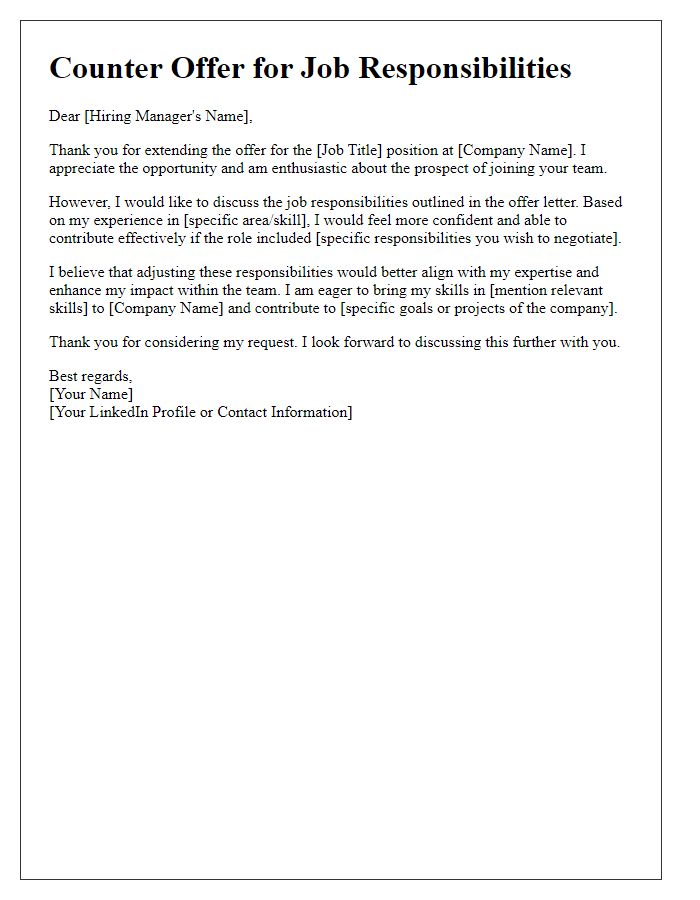
Letter template of offer letter counter negotiation for remote work flexibility
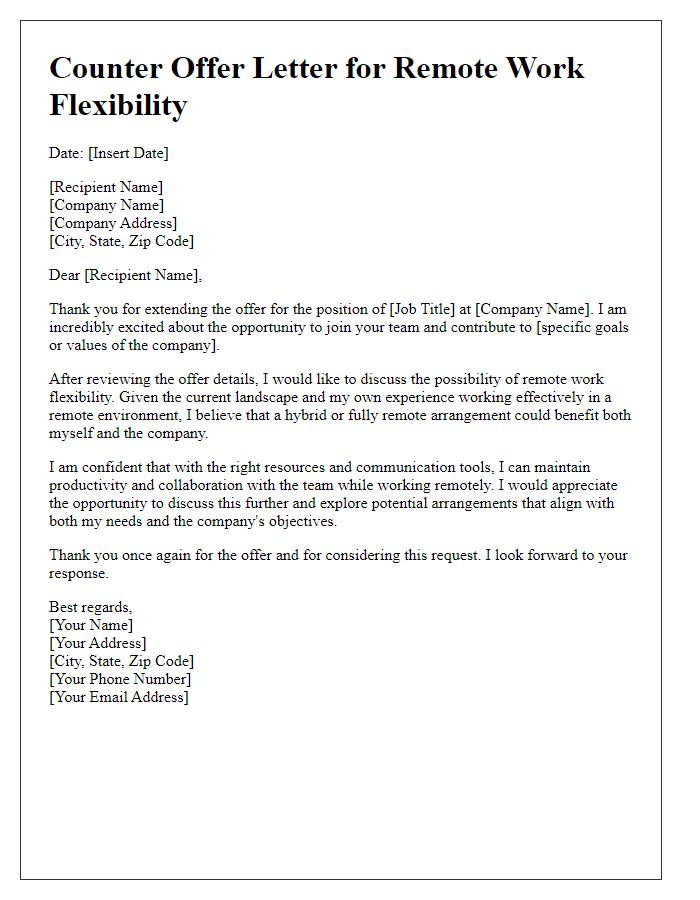
Letter template of offer letter counter negotiation for relocation assistance
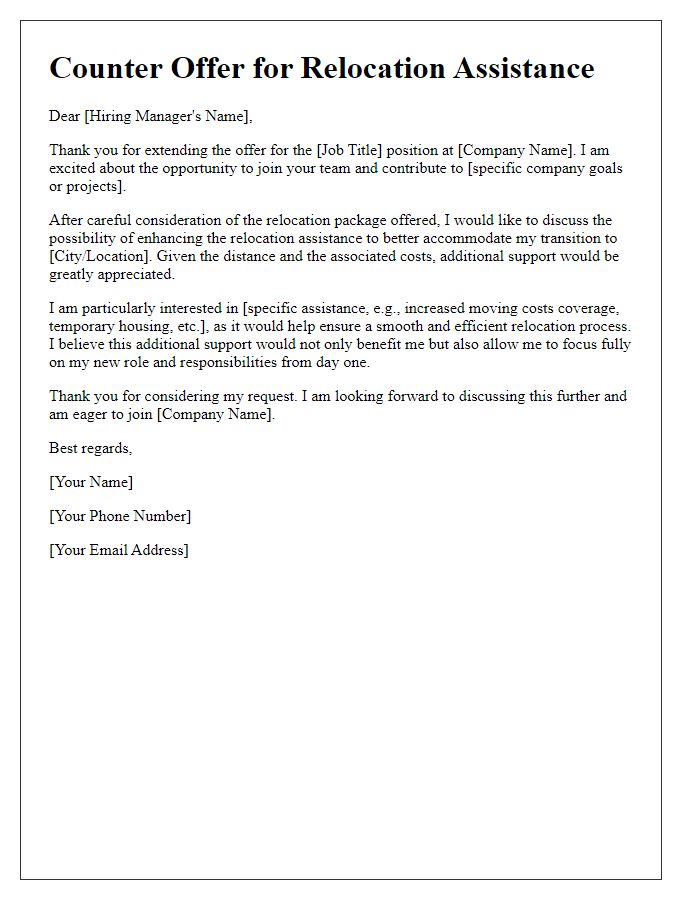
Letter template of offer letter counter negotiation for signing bonus request
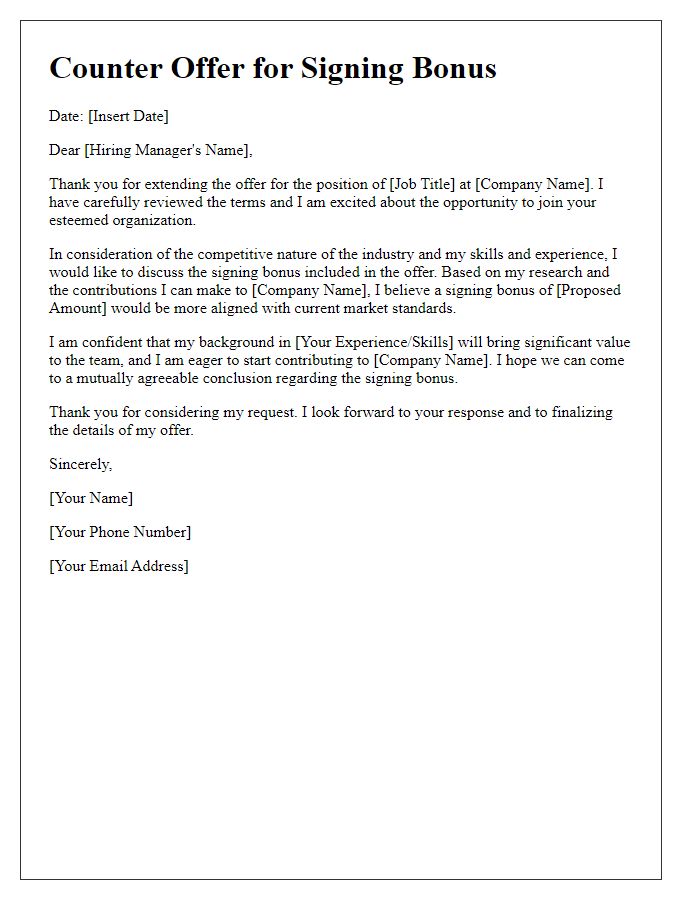
Letter template of offer letter counter negotiation for additional benefits
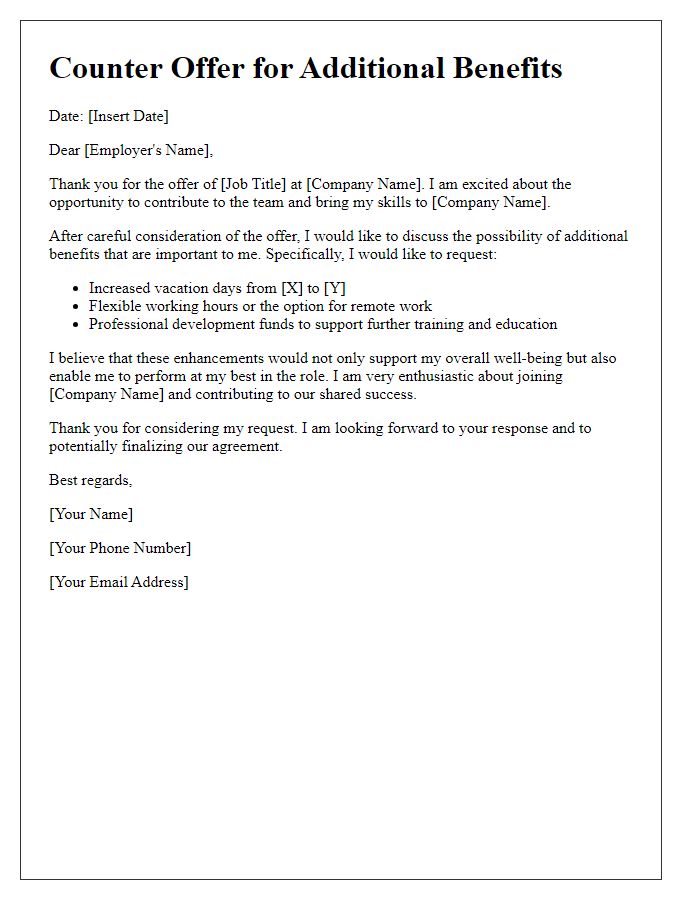
Letter template of offer letter counter negotiation for vacation days increase
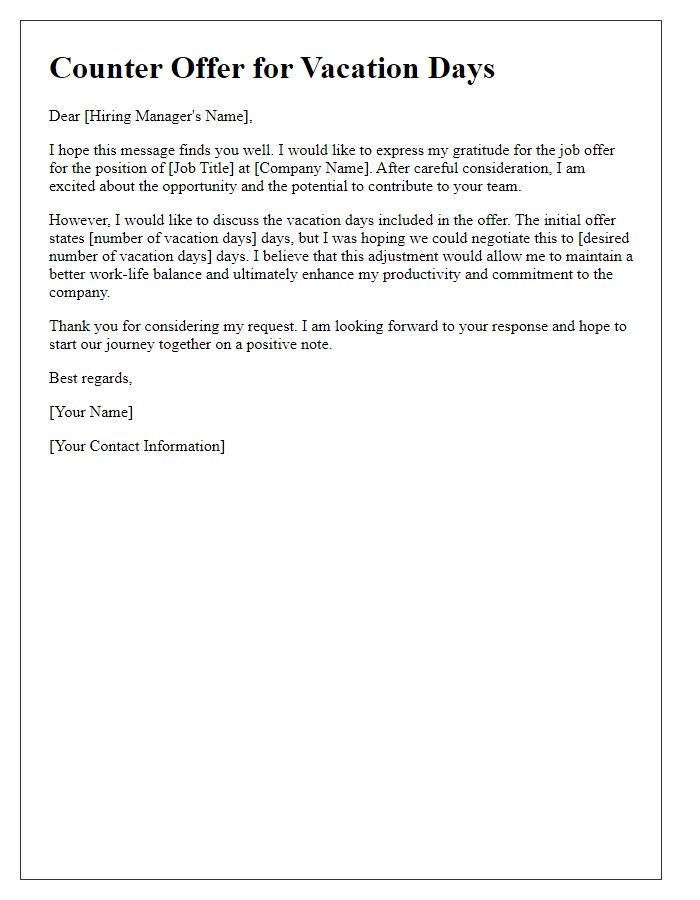
Letter template of offer letter counter negotiation for professional development support
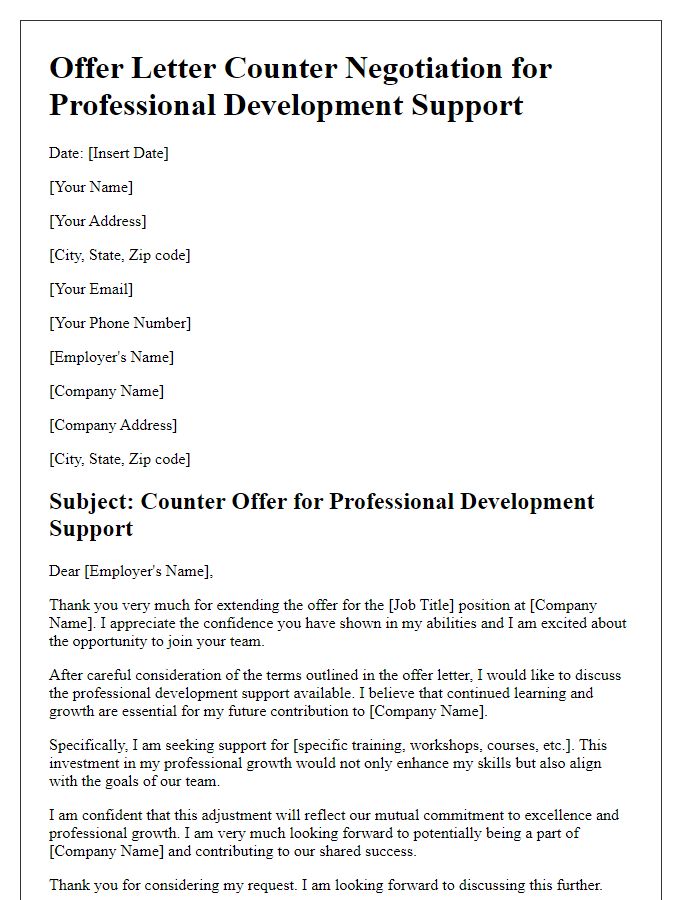
Letter template of offer letter counter negotiation for work schedule modification
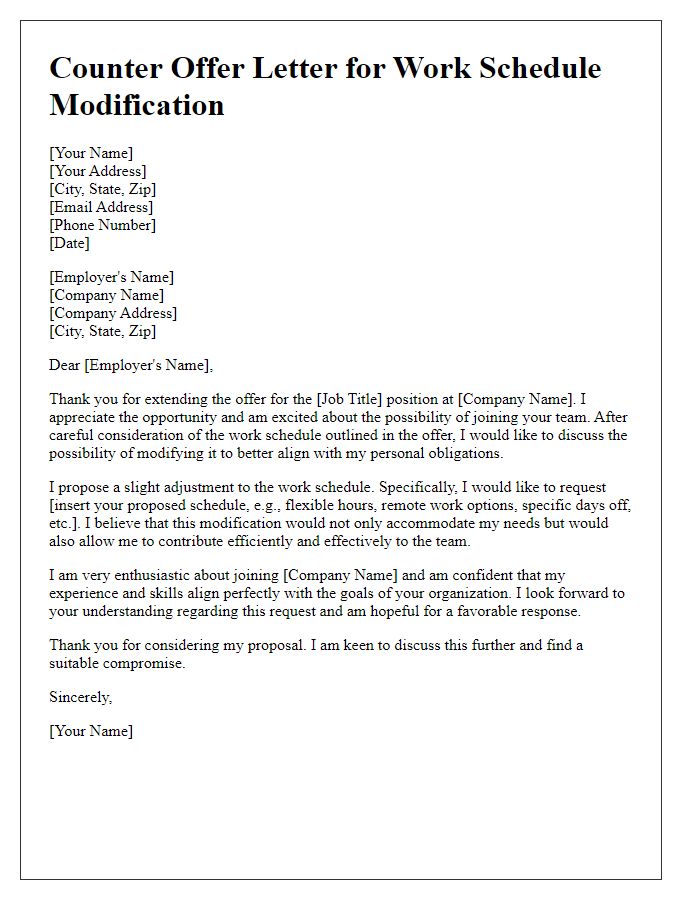

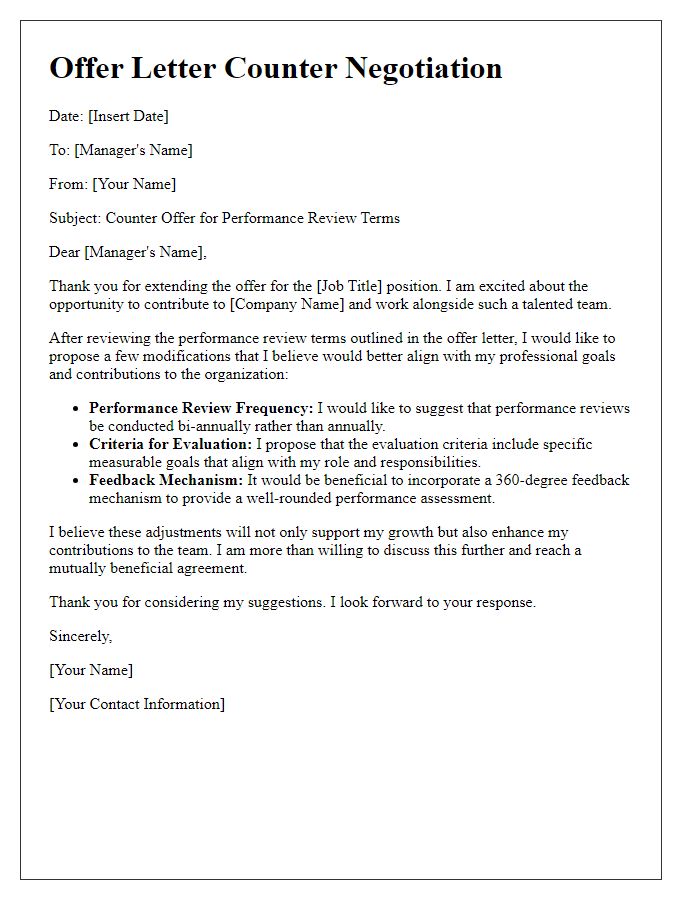


Comments